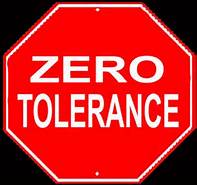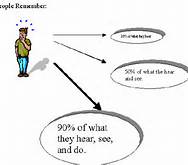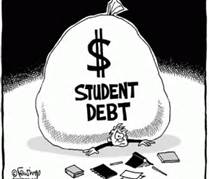 I just read a pair of articles, here and here, about the United States’s stubbornly high unemployment rate and the causes thereof. The basic premise is that there are plenty of jobs but young Americans don’t have the skill to fill them, the so-called skill gap.
I just read a pair of articles, here and here, about the United States’s stubbornly high unemployment rate and the causes thereof. The basic premise is that there are plenty of jobs but young Americans don’t have the skill to fill them, the so-called skill gap.
I’m quickly approaching my 50th birthday and many of my friends are now in fairly high-level positions with their companies. I know a woman who is highly placed at Monsanto, another who one day will likely be the owner of her family chemical company, a good friend is a high-level executive at AT&T, another few friends are in managerial positions at Boeing, and another friend’s wife has a prominent position at Siemens. I don’t mention these people to brag about how well some of my friends are doing, although I’m certainly glad that such high-achievers hang out with a teacher and writer like me!
My point is that there seems to be a fairly strong consensus in the business world that not enough young Americans have the skills necessary to do the work required. At my workplace we’re constantly trying to hire computer technicians and, as often as not, the young hires can’t do the job.
The astonishingly weak scores of young U.S. students in testing indicates this problem is not going away and is, in fact, growing worse.
The world is transitioning to the information age and this is as important as was the industrial revolution that occurred during the 19th century. We need workers who can do the job. These workers will rise through the ranks and become tomorrow’s leaders.
The lack of skills are not simply based in technical knowledge but includes huge problems with writing and communication. Practical experience is woefully inadequate.
How do we resolve this situation? There are no easy answers.
It starts with parents stressing education and achievement to their children. That’s what they are doing in India and China. It’s what Jewish and Asian-American parents have done for generations and it works.
Schools must make sure students know how to learn. This is especially important in the early years of education because technical skills will be taught later. Teachers must demand more from their students, not less.
Higher education must focus more on practical realities and less on theory, for certain fields at least.
Business must make it clear to the education providers what it will take to be employed in the modern world. What sort of skills are necessary. This is already happening as more and more companies reach into universities to hire summer interns and eventually transition them to full-time employees. Apprentice programs in Europe and particularly Germany encourage kids to skip higher education altogether and go straight into the business world and learn a trade.
The important point about this sort of thing is that there is no single solution. There is no overnight change that can be implemented to solve the problem. We must work together to promote various ideas. The solutions I’ve outlined above are merely nascent ideas and not fully detailed plans-of-action.
What we must imagine is what will happen to the United States if we don’t produce enough people to do the job properly. What will happen to our industry, our innovation, our economic power?
It’s not just about being employed, making a living, having quality of life. Unemployment, when it is driven by lack of qualified personnel, is a harbinger of danger for our nation.
Tom Liberman
Sword and Sorcery fantasy with a Libertarian Ideology
Current Release: The Spear of the Hunt
Next Release: The Broken Throne






 There was an
There was an 




 Former Secretary of Education William Bennett is out promoting a new book and in a
Former Secretary of Education William Bennett is out promoting a new book and in a 




